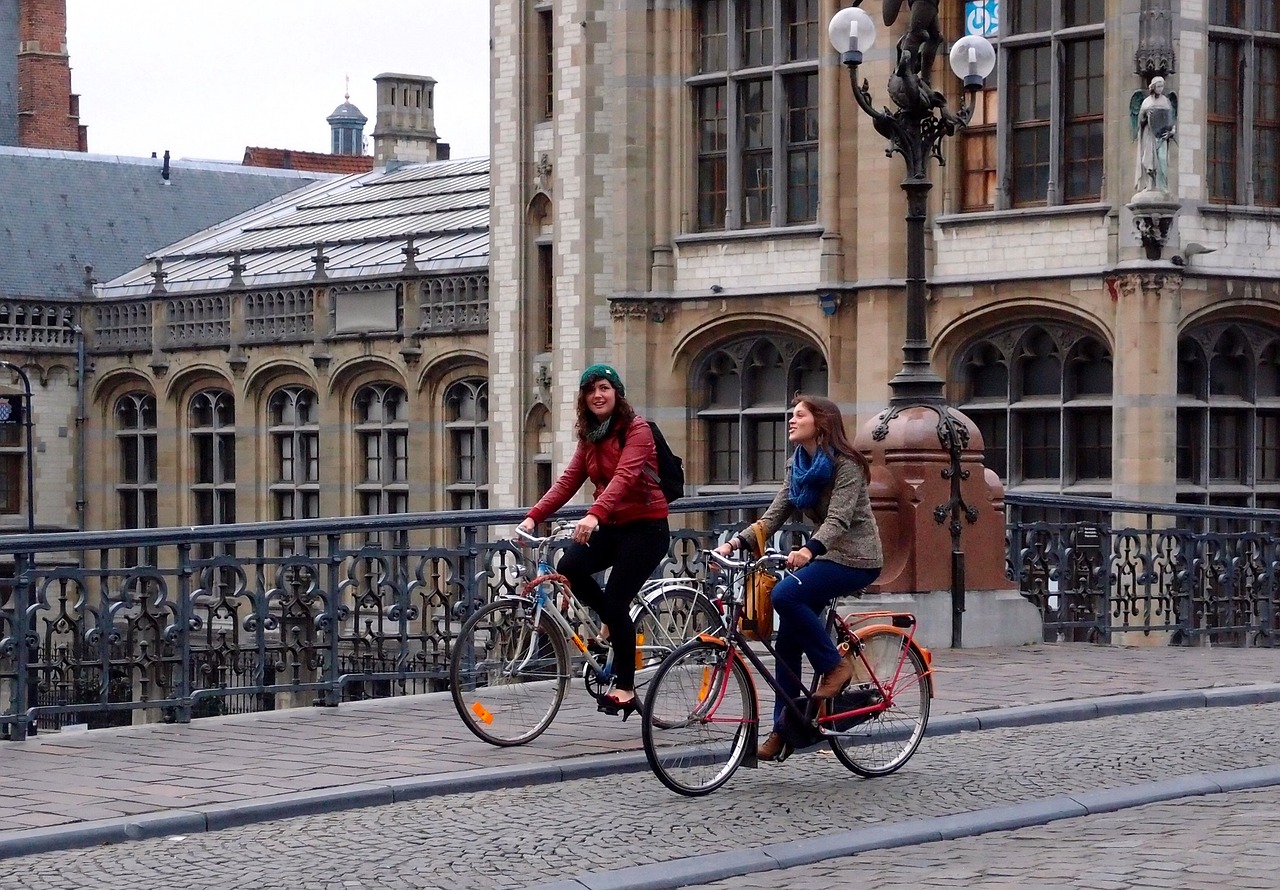Belgium Video:
Safety Tips for Remote Workers in Belgium
Remote work has become increasingly popular in recent years, offering individuals the flexibility to work from anywhere, including the beautiful country of Belgium. However, working remotely also comes with its own set of challenges, especially when it comes to ensuring personal safety and security. In this article, we will explore some essential safety tips for remote workers in Belgium.
1. Secure Your Home Office
Creating a secure and private home office is crucial for remote workers. Start by ensuring that your home office is equipped with a reliable lock on the door and sturdy windows that are resistant to break-ins. Consider installing a security system or surveillance cameras for added protection. Additionally, keep your work equipment, such as laptops and mobile devices, secure and locked away when not in use.
- Invest in a quality door lock: A strong and secure door lock is the first line of defense against intruders.
- Install window security: Reinforce your windows with security film or window locks to prevent unauthorized access.
- Set up a security system: Install a home security system that includes cameras and motion sensors to deter potential burglars.
Install a deadbolt lock or a smart lock to enhance security.
Consider using window sensors or bars for added protection.
Choose a system that allows remote monitoring and alerts.
2. Utilize Secure Internet Connections
Working remotely often requires accessing sensitive information and communicating with colleagues or clients online. Protect your data and privacy by using secure internet connections.
- Use a Virtual Private Network (VPN): A VPN encrypts your internet traffic, ensuring that your online activities remain private and secure.
- Avoid public Wi-Fi networks: Public Wi-Fi networks are often unsecured, making them vulnerable to hackers. Instead, use your own secured mobile hotspot or connect to trusted networks.
- Enable two-factor authentication: Add an extra layer of security to your online accounts by enabling two-factor authentication (2FA). This requires a second verification step, such as a unique code sent to your mobile device.
Choose a reputable VPN provider with servers in Belgium for optimal performance.
Consider using a portable Wi-Fi router for reliable internet access on the go.
Enable 2FA on your email, cloud storage, and other critical accounts.
3. Stay Vigilant Against Cyber Threats
As a remote worker, you are exposed to various cyber threats. Take proactive measures to protect yourself and your work from potential attacks.
- Keep your software up to date: Regularly update your operating system, antivirus software, and other applications to patch security vulnerabilities.
- Beware of phishing attempts: Be cautious when clicking on links or opening attachments in emails, especially if they appear suspicious or come from unknown sources.
- Use strong and unique passwords: Create complex passwords that include a combination of letters, numbers, and special characters. Avoid reusing passwords across multiple accounts.
Enable automatic updates whenever possible.
Verify the sender’s email address and double-check the URL before submitting any personal information.
Consider using a password manager to securely store and generate strong passwords.
Belgium Image 1:

4. Maintain Physical and Mental Well-being
Working remotely can sometimes blur the boundaries between work and personal life. It’s essential to prioritize your physical and mental well-being.
- Establish a routine: Set a regular work schedule and stick to it. Create designated break times to recharge and avoid burnout.
- Create an ergonomic workspace: Invest in an ergonomic chair and desk setup to maintain good posture and reduce the risk of musculoskeletal issues.
- Practice self-care: Engage in activities that help you relax and unwind, such as meditation, exercise, or hobbies you enjoy.
Take short walks or stretch during breaks to stay active.
Position your computer monitor at eye level and use a keyboard and mouse that promote comfortable typing.
Take regular breaks to clear your mind and reduce stress.
5. Be Mindful of Local Laws and Regulations
When working remotely in Belgium, it’s crucial to familiarize yourself with the local laws and regulations that may affect your work.
- Understand tax obligations: Consult with a tax professional to ensure compliance with Belgian tax laws, especially if you are working remotely for an extended period.
- Respect intellectual property rights: Familiarize yourself with copyright and intellectual property laws to avoid any legal issues related to the use of copyrighted materials or intellectual property.
Keep track of your income and expenses for accurate reporting.
Obtain proper permissions or licenses when necessary.
Belgium Image 2:

6. Maintain Communication with Colleagues and Employers
Working remotely can sometimes lead to feelings of isolation. It’s important to maintain regular communication with your colleagues and employers.
- Utilize communication tools: Use video conferencing, instant messaging, and project management tools to stay connected with your team.
- Clarify expectations: Clearly define your roles, responsibilities, and deadlines to avoid miscommunication or misunderstandings.
- Seek support when needed: Reach out to your colleagues or supervisors if you encounter any challenges or need assistance. Collaboration and teamwork are essential for remote success.
Arrange regular check-ins and update meetings to ensure everyone is on the same page.
Document important discussions and agreements in writing.
Don’t hesitate to ask for help or guidance when necessary.
7. Take Breaks and Practice Work-Life Balance
Remote work offers flexibility, but it’s important to establish boundaries and practice work-life balance to avoid burnout.
- Set clear work hours: Define your working hours and communicate them to your colleagues and clients. Avoid working excessive hours or taking work into personal time.
- Create a separate workspace: Designate a specific area in your home for work, separate from your living space. This helps create a mental distinction between work and personal life.
Create a schedule that allows for breaks, leisure activities, and time with loved ones.
Close the door to your home office or pack away your work equipment at the end of the day.
Belgium Image 3:

8. Stay Informed About Emergency Procedures
Familiarize yourself with emergency procedures and protocols in Belgium to ensure your safety in unforeseen situations.
- Know emergency contact numbers: Save the local emergency contact numbers, including police, fire, and medical services, in your phone.
- Be aware of evacuation routes: Identify the nearest evacuation routes from your home and office. Familiarize yourself with emergency exits and assembly points.
Keep a list of important contacts readily accessible.
Participate in emergency drills if available.
9. Stay Healthy and Hydrated
Maintaining good health while working remotely is essential for productivity and well-being. Pay attention to your physical health and stay hydrated.
- Practice regular exercise: Engage in physical activities that you enjoy, such as walking, jogging, or yoga. Incorporate movement into your daily routine.
- Stay hydrated: Drink plenty of water throughout the day to stay hydrated and maintain optimal cognitive function.
- Eat a balanced diet: Fuel your body with nutritious meals and snacks to maintain energy levels and focus.
Take advantage of Belgium’s beautiful landscapes and parks for outdoor activities.
Keep a water bottle nearby during work hours.
Explore local cuisine and incorporate fresh, local produce into your meals.
10. Secure Data and Back Up Regularly
Protecting your work and personal data is crucial for remote workers. Implement data security measures and regularly back up your important files.
- Use secure cloud storage: Store your files in encrypted cloud storage services with strong security measures. Ensure that the service you choose complies with data protection regulations.
- Encrypt sensitive data: Utilize encryption tools to protect sensitive information, such as client data or proprietary company information.
- Employ strong authentication: Enable multi-factor authentication for your online accounts to add an extra layer of security.
Regularly back up your files to avoid data loss.
Choose strong encryption algorithms and keep encryption keys secure.
Consider using biometric authentication methods for enhanced security.
11. Be Mindful of Cultural Differences
Belgium is a diverse country with a rich cultural heritage. When working remotely in Belgium, be respectful of local customs and traditions.
- Research cultural norms: Familiarize yourself with Belgian customs, greetings, and business etiquette to avoid unintentional offense.
- Adapt communication styles: Be mindful of the tone and style of your communication, taking into account cultural differences and preferences.
Be aware of regional differences within Belgium, as customs may vary.
Practice active listening and be open to diverse perspectives.
12. Maintain Work-Life Boundaries
Finally, it’s important to establish clear boundaries between work and personal life to maintain a healthy work-life balance.
- Set realistic expectations: Communicate your availability and response times to avoid unreasonable demands or expectations.
- Disconnect after work: Once your work hours are over, disconnect from work-related activities and focus on personal time and relaxation.
Establish boundaries with clients and colleagues to ensure a healthy work-life balance.
Engage in hobbies, spend time with loved ones, or pursue activities that bring you joy.
Conclusion
Working remotely in Belgium provides a unique opportunity to experience the country’s beauty while pursuing your professional goals. By following these safety tips, you can create a secure and productive remote work environment. Remember to prioritize your well-being, stay informed about local laws and regulations, and maintain open communication with your colleagues and employers. Embrace the flexibility of remote work while ensuring your personal safety and security.
References
- belgium.be
- visitflanders.com
- visitbrussels.be
- expatica.com
- europa.eu


